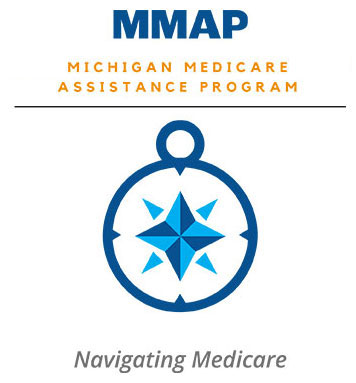The Health Care Innovation Awards is a Centers for Medicare & Medicaid Services (CMS) Innovation Center initiative that tests new payment and service delivery models and aims to find better ways to deliver care and bring down costs for Medicare, Medicaid, and/or Children’s Health Insurance Program (CHIP) enrollees. Today we are sharing the second annual independent evaluation reports of round one of the Health Care Innovation Awards. Overall, these evaluation reports show a wide range of experiences that have resulted in tangible benefits for patients and helped inform CMS in the development of new payment and service delivery models.
Where data are available, these reports describe preliminary impact estimates on key outcome measures such as hospitalizations and readmissions. A number of awardees showed favorable results on one or more measures of cost, hospitalizations, readmissions, and emergency room visits. Here are some early highlights of a few of the awards:
- Innovative Oncology Business Solutions, Inc. – through its Community Oncology Medical Home – reached more than 2,100 cancer patients through seven community oncology practices across the United States. Through comprehensive and coordinated oncology care, the model established pathways that:
- allowed providers to identify and manage symptoms in real time;
- improved patient access to providers through same-day appointments and extended night and weekend office hours; and
- provided disease management guidance for providers to improve treatment decision-making, symptom recognition, and assistance with patients’ self care, pain management, and caregiver support.
The evaluation report shows that this award demonstrated a significant reduction in hospital readmissions and emergency room visits. In addition, qualitative findings suggest that staff highly value the triage pathways for making their workflow more efficient, and patients greatly appreciate weekend hours and increased capacity for urgent care visits during the day. Elements of this model were incorporated into the design of the Oncology Care Model.
- The High-Risk Children’s Clinic at the University of Texas Health Science Center at Houston’s (HRCC) offered dedicated outpatient services (primary, specialty, post-acute, chronic disease management) and around-the-clock phone access for extremely fragile and complex chronically ill children enrolled in Medicaid. Every family in the HRCC has an assigned clinician who involves the parent in all health assessments, empowering parents as experts in their child’s health condition and educating families on exacerbating symptoms. The evaluation found that the program significantly reduced emergency department visits and hospital admissions, which drove savings in medical and hospital cost of care for participating children. In addition, the report finds that the patient and family centered approach appears to have resulted in improved patient and family caregiver experience.
- Welvie is a program that offers education, health information, and decision-making resources regarding preference-sensitive surgeries to Medicare beneficiaries. Welvie conducts regularly scheduled, population-based outreach well before treatment decisions need to be made. Program administrators also review regional health care utilization patterns and mail outreach materials to arrive before periods of increased surgery utilization so that beneficiaries can recall and access the resources when needed. The program has enrolled over 181,000 beneficiaries in Ohio and almost 54,000 beneficiaries in Texas. Enrollees in Ohio had a statistically significant decrease in mortality as well as indications of a reduction in hospital readmissions following surgery-related hospital admissions for the Medicare FFS beneficiaries. The program was also associated with reductions in various surgery-related categories of expenditures among Medicare Advantage beneficiaries.
Diabetes Prevention Program
We recently announced that a round one Health Care Innovation Awards project — the Diabetes Prevention Program – is eligible for expansion under Medicare. The National Council of Young Men’s Christian Associations of the United States of America (Y-USA) enrolled eligible Medicare beneficiaries at high risk for diabetes in a program that could decrease their risk for developing serious diabetes-related illnesses. Beneficiaries in the program attended weekly meetings with a lifestyle coach who trained participants in strategies for long-term dietary change, increased physical activity, and behavior changes to control their weight and decrease their risk of type 2 diabetes. After the initial weekly training sessions, participants could attend monthly follow-up meetings to help maintain healthy behaviors. The main goal of the program was to improve participants’ health through improved nutrition and physical activity, targeting at least a five percent weight loss for each individual.
The independent CMS Office of the Actuary certified that expansion of the Diabetes Prevention Program would reduce net Medicare spending. The expansion was also determined to improve the quality of patient care without limiting coverage or benefits. This is the first time that a preventive service model from the CMS Innovation Center has become eligible for expansion into the Medicare program.
Health Care Innovation Awards Background
In July 2012, the CMS Innovation Center awarded 107 cooperative agreements through round one of the Health Care Innovation Awards to implement the most compelling ideas that aimed to deliver better care while spending health care dollars more wisely. Up to $1 billion were awarded to organizations that tested projects across the country that worked to achieve better quality of care and save money for people enrolled in Medicare, Medicaid and the Children’s Health Insurance Program. The evaluation reports are divided into large topical areas:
- Behavioral health and substance abuse;
- Complex and high risk patient targeting;
- Community resource planning and prevention;
- Disease specific;
- Hospital interventions;
- Primary care redesign; and
- Shared decision making/medication management
The first annual evaluation reports were released in April 2015 and provided qualitative findings largely focusing on the implementation experience covering the period from the award date through summer 2014. The reports released today synthesize findings from additional rounds of interviews and site visits conducted from the award date through summer 2015, preliminary estimates of impacts on four core measures (cost, hospitalizations, readmissions, emergency room visits) depending on the intervention and data availability, and results from select surveys of providers focusing on workforce and primary care.
While the results of the awards are wide-ranging, the evaluation of round one of the Health Care Innovation Awards is still ongoing and future reports will add to the current results. There is still much to learn, and we hope that other public and private entities will continue to invest in initiatives and efforts that improve the health care system in this country.

